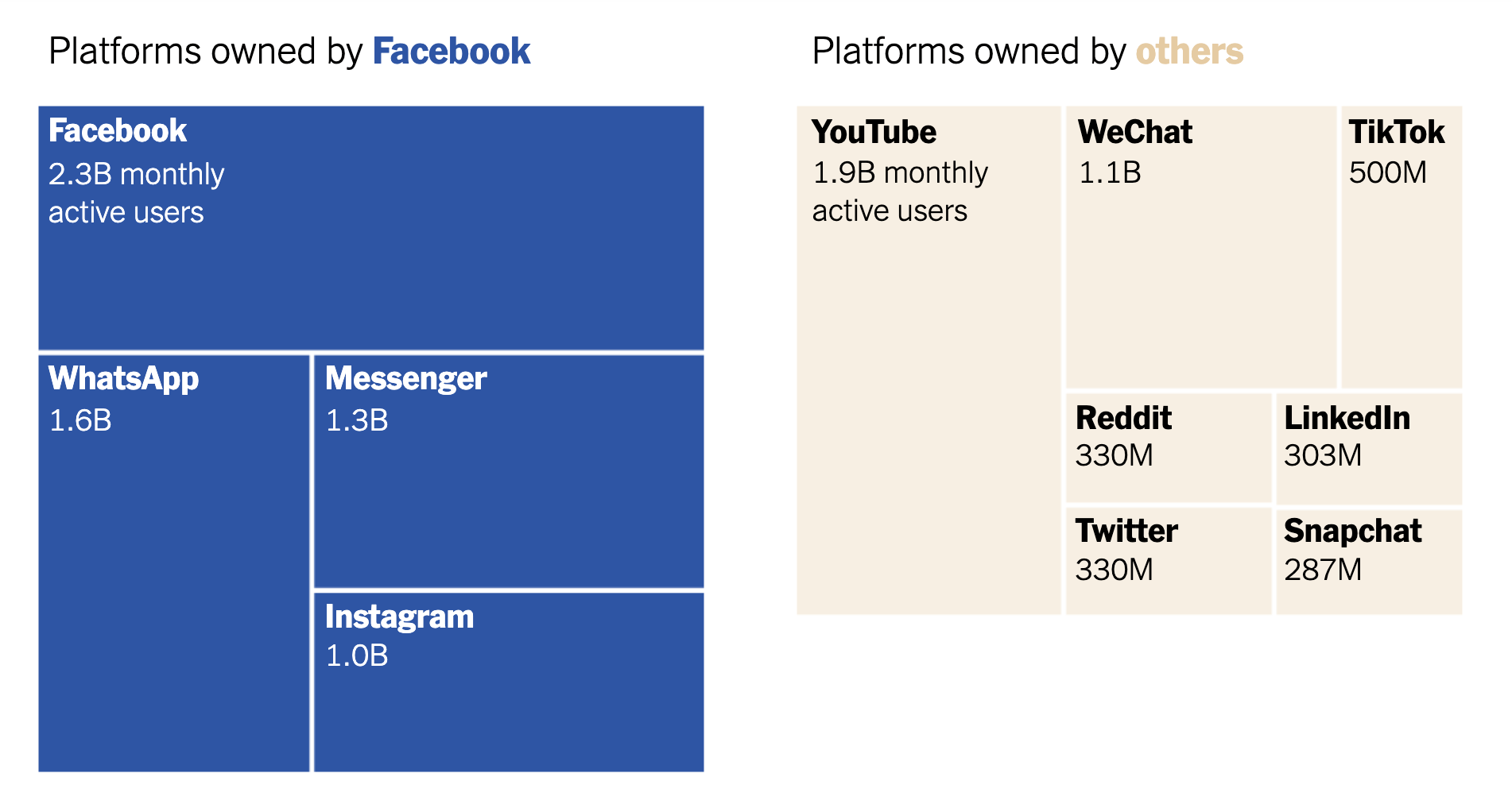Why it matters: Facebook co-founder Chris Hughes says it's time to break up the social media giant. He believes the company and CEO Mark Zuckerberg have too much control over our news, the social media market, and society in general. He is advocating that the acquisitions of Instagram and WhatsApp be overturned as well as a new government body being formed to regulate social media companies.
In the New York Times op-ed, Hughes lays out a compelling argument for breaking up Facebook. He believes the company he helped create in a Harvard dorm room has become too big and must be regulated.
For every dollar spent on social media advertising, 84 cents goes to Facebook. Their average monthly user numbers are staggering as well. They have designed their different platforms to interconnect in a effort to keep users clicking and coming back.
Hughes describes the reason Facebook has gotten so big is its aggressive stance towards competitors. In many cases, Facebook has either bought its competitors or just copied them, putting them out of business. This makes it almost impossible to compete with Facebook in any market they are active in. There has been very little funding for new social media companies since Facebook has taken over. No major new platforms have emerged since 2011.

Platform usage graphic by the NY Times
Following scandal after scandal, many users have expressed frustration that there is nowhere else to go besides Facebook. They don't have a single legitimate competitor. Some users have ditched Facebook for Instagram, unaware that Facebook owns that as well. The argument goes that controlling our news through the Facebook news feed, our messaging through WhatsApp, and our media through Instagram, Hughes believes Facebook has gotten too powerful. Zuckerberg doesn't have a boss, can't be fired, and controls 60% of the voting shares of the company's board of directors.
One of Hughes's biggest complaints is how Facebook manages content. Their algorithms can make or break companies depending on where it positions them in users' feeds. There is little to no oversight on what Facebook can and can't do regarding how it handles privacy, hate speech, and fake news.
To start bringing Facebook back under control, Hughes outlines two main steps that should be taken. First, he believes the acquisitions of Instagram and WhatsApp should be overturned. He wants these to be separate companies that Zuckerberg and Facebook do not control.
Second, he is advocating for the creation of a government body to regulate the social media industry. Just like pharmaceuticals are regulated by the FDA and airlines are regulated by the FAA, he believes there should be an organization to regulate social media. This government body would set rules for what is classified under free speech versus hate speech. They would also be tasked with ensuring social media companies properly protect the privacy of the users' data they are entrusted with.
He views recent proposals by politicians in regulating and breakup up big tech companies as hopeful. Facebook's influence as a whole is here to stay, but only time will tell how much of it remains under their control.
Second View: To bring some counterpoint to Chris Hughes' views, his call for supervision no doubt involves more bureaucracy and a lack of trust in the public's right to choose which platforms to use. Maybe Facebook's dominance of today will be trumped a decade later by a newer, better idea. It also reminds us of the few times a successful tech company with a dominant position in the market has turned so big that as a consequence, it also becomes an easy target of criticism for every mistake they make. Think Microsoft's Windows a decade ago and Google's search monopoly, which is still ongoing.
